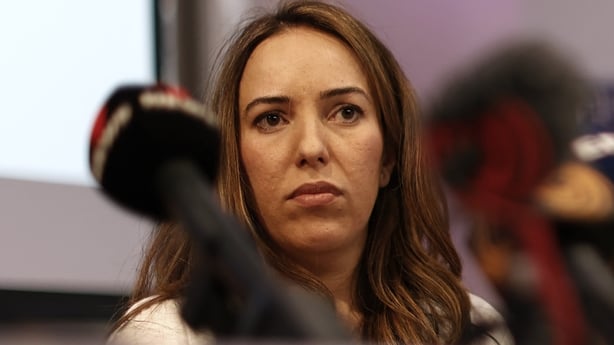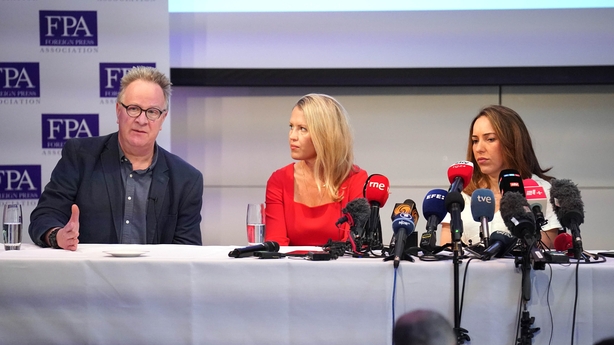The British Home Secretary Priti Patel has signed an order to extradite WikiLeaks founder Julian Assange from the UK to the United States.
Mr Assange is wanted by US authorities on 18 counts, including a spying charge, relating to WikiLeaks' release of vast troves of confidential US military records and diplomatic cables which they said had put lives in danger.
His wife Stella Assange said she would appeal the decision. "We're going to fight this. We're going to use every appeal avenue," she told reporters.
"I'm going to spend every waking hour fighting for Julian until he is free, until justice is served."

Mr Assange can launch an appeal at London's High Court, which must give its approval for a challenge to proceed. Ultimately, the journalist can seek to take his case to the UK Supreme Court.
But if an appeal is refused, Mr Assange must be extradited within 28 days.
Ms Assange told a press conference in London that her husband's health was "deteriorating by the day".
She said: "Some days are harder than others" and added that "Julian had a mini-stroke in October".
Jennifer Robinson, Mr Assange's lawyer, said the appeal had to be lodged within a fortnight, but the wait for a further decision may be up to a year away.
Ms Assange also said: "This is a dark day for press freedom and for British democracy.
"Julian did nothing wrong. He has committed no crime and is not a criminal. He is a journalist and a publisher, and he is being punished for doing his job.
"It was in Priti Patel's power to do the right thing. Instead, she will forever be remembered as an accomplice of the United States in its agenda to turn investigative journalism into a criminal enterprise.
"The path to Julian's freedom is long and tortuous. Today is not the end of the fight. It is only the beginning of a new legal battle."
WikiLeaks called the UK decision a "dark day" for press freedom and British democracy.
Australian-born Julian Assange is being held at Belmarsh prison in London after mounting a lengthy battle to avoid being extradited.

A UK Home Office spokesperson said: "Under the Extradition Act 2003, the Secretary of State must sign an extradition order if there are no grounds to prohibit the order being made.
"Extradition requests are only sent to the Home Secretary once a judge decides it can proceed after considering various aspects of the case.
"On 17 June, following consideration by both the Magistrates' Court and High Court, the extradition of Mr Julian Assange to the US was ordered. Mr Assange retains the normal 14-day right to appeal.
"In this case, the UK courts have not found that it would be oppressive, unjust or an abuse of process to extradite Mr Assange.
"Nor have they found that extradition would be incompatible with his human rights, including his right to a fair trial and to freedom of expression, and that whilst in the US he will be treated appropriately, including in relation to his health."
Former UK government minister David Davis has said he does not believe Mr Assange will have a fair trial in the US and called for the extradition rules to be rewritten.
The Conservative MP and former Brexit secretary said on Twitter: "Sadly I do not believe Mr Assange will get a fair trial. This extradition treaty needs to be rewritten to give British and American citizens identical rights, unlike now."
Originally, a British judge ruled that Mr Assange should not be deported, saying his mental health problems meant he would be at risk of suicide if convicted and held in a maximum security prison.
But this was overturned on an appeal after the US gave a package of assurances, including a pledge he could be transferred to Australia to serve any sentence.
"Allowing Julian Assange to be extradited to the US would put him at great risk and sends a chilling message to journalists the world over," said Agnes Callamard, Amnesty International's secretary general.
The Australian government said it would continue to tell the UK and US that the case had "dragged on for too long and should be brought to a close".

